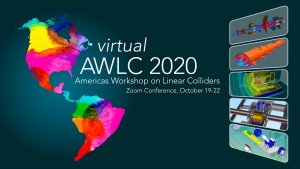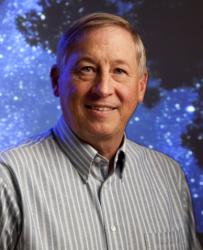Following the International Committee for Future Accelerator’s August announcement of the new phase toward preparation for the International Linear Collider (ILC), the Americas Linear Collider Committee (ALCC chaired by Hugh Montgomery) has scheduled the next workshop on linear colliders, to be held virtually via Zoom.The Americas Workshop on Linear Colliders will be held in the week of 19 to 22 October and will work to build the Americas community engagement in the ILC and to motivate ILC contributions to Snowmass 2021.
The agenda will emphasise the current effort to realise a Pre-laboratory for the ILC, particularly the work toward this end led by the ILC International Development Team (IDT), recently created by ICFA. The ILC-IDT takes over leadership of the global effort from the Linear Collider Collaboration (LCC), that has led the community’s work toward realising a linear collider since 2013.
A critical process of planning for high energy physics in the US is now underway, beginning with Snowmass 2021. Snowmass 2021 will be followed by the Particle Physics Project Prioritization Panel (P5) strategic planning process led by the Department of Energy and the National Science Foundation to prioritise the funding opportunities for US federal support for high-energy physics. During this period, the National Research Council will also conduct their survey of high energy physics which happens about once each decade. The 2014 P5 report is widely viewed as a critical element in motivating the US Congress to significantly increase funding for hig- energy physics during the past several years. It is critical that the new P5 process lead to continued progress in US HEP funding, and that the work toward the ILC plays a strong role in the P5 plan.
The programme for AWLC 2020 is now being developed. The Program Committee is chaired by Andy White (The University of Texas at Arlington) and me. There are four days of plenary sessions planned for the afternoons Pacific Daylight Savings Time, along with parallel sessions in the mornings. The plenary sessions will begin on Monday with an overview of the physics of the ILC, recent developments, and the steps being taken to establish the ILC-IDT. The Monday programme will include reports on progress in other regions, including the recent update of the European Strategy for high-energy physics. Tuesday will concentrate on the global accelerator R&D programme. The physics requirements for ILC detectors will be presented on Wednesday, along with a variety of talks on specific detectors on tracking and calorimetry, as well as software and computing. Wednesday will finish with a discussion of ILC opportunities for early-career physicists.
The workshop will wrap up on Thursday, with a survey talk on the physics impact of the ILC on the landscape of new physics. The anticipated timeline for detector planning and construction will be discussed. Talks by US government representatives will provide an update on the perspective from Washington. Before adjourning, the workshop plans to close with a panel discussion including active ILC collaborators along with mid-career colleagues from outside the current ILC community.
The world-wide ILC community has followed a pattern for several years of two workshops annually, one the global LCWS series (including participation with CLIC colleagues) and a second regional workshop albeit with global participation. The last such workshop was LCWS 2019 in Sendai, Japan. The COVID19 pandemic interrupted the pattern in the spring when it would have been the turn for a regional meeting in the Americas, resulting in the delay to October, 2020. In the meantime, ICFA has met twice, at SLAC in February and during International Conference on High Energy Physics in August, creating the ILC-IDT.
SLAC hosts the workshop and Michael Peskin chairs the Local Organising Committee.
The workshop web site is https://conf.slac.stanford.edu/awlc2020/
We have planned an interesting and informative programme with excellent speakers covering the topics in physics, detectors, accelerators and the planning for the pre-lab. We encourage everyone interested in future opportunities in collider physics to register for the workshop and plan to join the online presentations.



Recent Comments